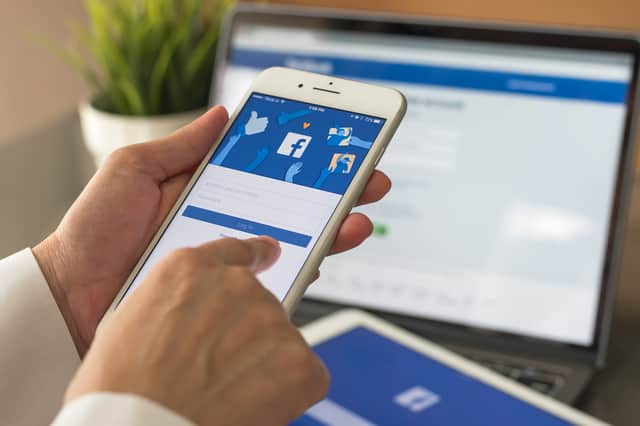Why saying 'happy birthday' on Facebook could put you and your friends at risk of being hacked


Wishing friends happy birthday on Facebook and Twitter can put you and your friends online security at risk, according to building society Nationwide.
The survey conducted by Nationwide found that some 20% claim to have had their social media accounts hacked and more than one in 10 (11%) of these people said they or a friend had lost money as a result.
The perils of oversharing


Advertisement
Hide AdAdvertisement
Hide AdThe survey of more than 1,000 16 to 25-year-olds from Nationwide Building Society found that 83% of interviewees know someone who gives away their personal information online.
Some of those surveyed noted that they had witnessed others share their current location, holiday updates, birthday, photos that identify where they work, photos of where they study, photos of their front door and even their bank account details.
The sharing of birth dates and other personal details can pave the way for fraudsters according to Nationwide.
Oversharing on Facebook can assist fraudsters according to Nationwide (Photo: Shutterstock)
Advertisement
Hide AdAdvertisement
Hide AdStuart Skinner, director of fraud at Nationwide Building Society, warned against the dangers of oversharing.
"Social media is a great way for people to connect with friends or family, but it's important to think about the information you are sharing with others, so it doesn't fall into the wrong hands.
"Wishing someone a happy birthday or sharing your location may seem innocent enough, but fraudsters can piece together information from various places, collecting enough to defraud people."
How to stay safe
In order to protect yourself online Skinner recommends taking a number of actions.
Advertisement
Hide AdAdvertisement
Hide Ad"To protect yourself, check privacy settings so only vetted friends can see updates, don't give away too much information or anything you wouldn't want a fraudster to see, have a strong password that doesn't use any of your personal information and stop and think before sharing."
Nationwide also suggests taking the following steps in order to maintain your online security:
Avoid clicking suspicious links, even when sent from a trusted friendDon't share your bank details over private messages.Review your privacy settings and limit who can view your postsReject requests from people you don't know.Consider deleting friends you've only met once or twice.Don't tag yourself when you are at home or at work.Don't reveal when you are on holiday as this can alert people to your house being empty.